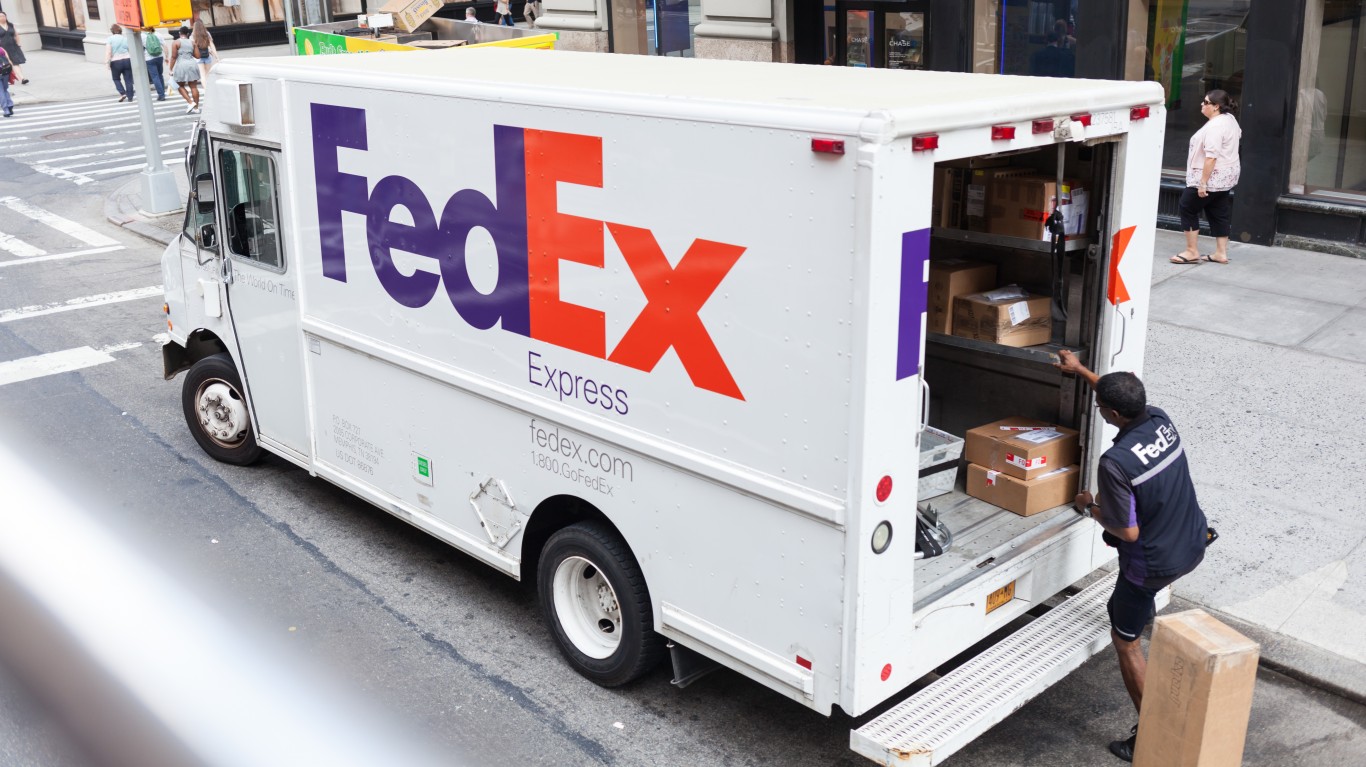Investing
Bill Gates Bought Only 2 Stocks in Q3 and He's Betting Big on Just One Sector

Published:

Microsoft (NASDAQ:MSFT) remains important to Bill Gates as it retains the largest position in his Bill & Melinda Gates Foundation portfolio, one of the world’s largest philanthropic organizations. Yet he’s sold off nearly a quarter of the tech giant’s stock over the past year, all the while not making any real moves with the rest of his portfolio’s holdings.
That is until the third quarter when he bought 1 million shares each of just two stocks, the only purchases he’s made in the past year. The fact that they are in the same sector — transportation — indicates he thinks the industry is ripe for recovery.
The S&P 500 Transportation index lost 0.5% in 2024 compared to a 27% gain by the S&P 500 itself. While it’s not a given that a poor performance one year will mean outperformance the next, Gates’ purchases suggest he is expecting a rebound in the economy. If that pans out, then shares of the two stocks he bought ought to have an excellent year and beyond.
Let’s dive into these companies and see why this billionaire superinvestor made his big bet on them.

Although Paccar (NASDAQ:PCAR) may not be a household name, its Peterbilt and Kenworth truck brands are certainly well-known, and have a respective 15% share of the Class 8 truck market. According to Wards Intelligence, that puts them in second and third place, respectively, behind Daimler Truck‘s (OTC:DTRUY) Freightliner at 36.5%. Class 8 trucks are the heaviest trucks on the road, with a gross vehicle weight rating (GVWR) of over 33,000 pounds.
Paccar had a good start in 2024 and its stock raced 27% higher in the first quarter, outpacing even the broad market index. Although the truck maker beat analyst expectations on the top and bottom line in the period as less-than-truckload (LTL) strength carried operations higher, the truckload business was weak and the outlook uncertain. PCAR stock began a long slog lower through the summer as a result.
Data from ACT Research shows year-over-year orders for Class 8 trucks remain below last year’s levels through November, but an upturn may be coming. Orders last month were up 21% from October, and ACT Research president and senior analyst Kenny Vieth told industry site Transport Topics, “We are still in the early stages of the industry’s building of 2025 backlogs, but through November, seasonally strong orders have made little progress in closing the backlog gap compared to year-ago levels.”
Gates purchased 1 million shares of PCAR stock at around $100 a share. The $100 million position is still small within the Foundation’s $45 billion portfolio, but it indicates Gates sees a turnaround in progress.

The second stock the billionaire investor made in the third quarter was to add 1 million shares to a position it already had in FedEx (NYSE:FDX), the industry giant in overnight shipping and logistics.
The company has had a rocky road in 2024 and most recently tumbled after its third-quarter report disappointed the market because FedEx lowered its full-year outlook.
Although the company might not be the same harbinger for the economy as General Motors (NYSE:GM) used to be — “As goes GM, so goes America” — because it operates across land, sea, and air and is the largest LTL operator in the U.S., FedEx does have its finger on the pulse of business health. Right now it’s giving off mixed signals.
As Gates purchased the stock at an average price of around $273 per share sometime after its harsh second-quarter earnings report, he may have felt the company was too undervalued to pass up. Yet there are catalysts for future growth.
It just announced it was spinning off its LTL business into a separately traded company, FedEx Freight, that contributed $9.4 billion in 2023. FedEx expects fiscal year 2025 sales for the business to be flat compared with this year. The move should enhance FedEx’s own operational position while improving its financial standing.
It is part of FedEx’s broader DRIVE transportation plan to improve efficiency and flexibility, and could pay off if the economy rebounds next year.
Thank you for reading! Have some feedback for us?
Contact the 24/7 Wall St. editorial team.